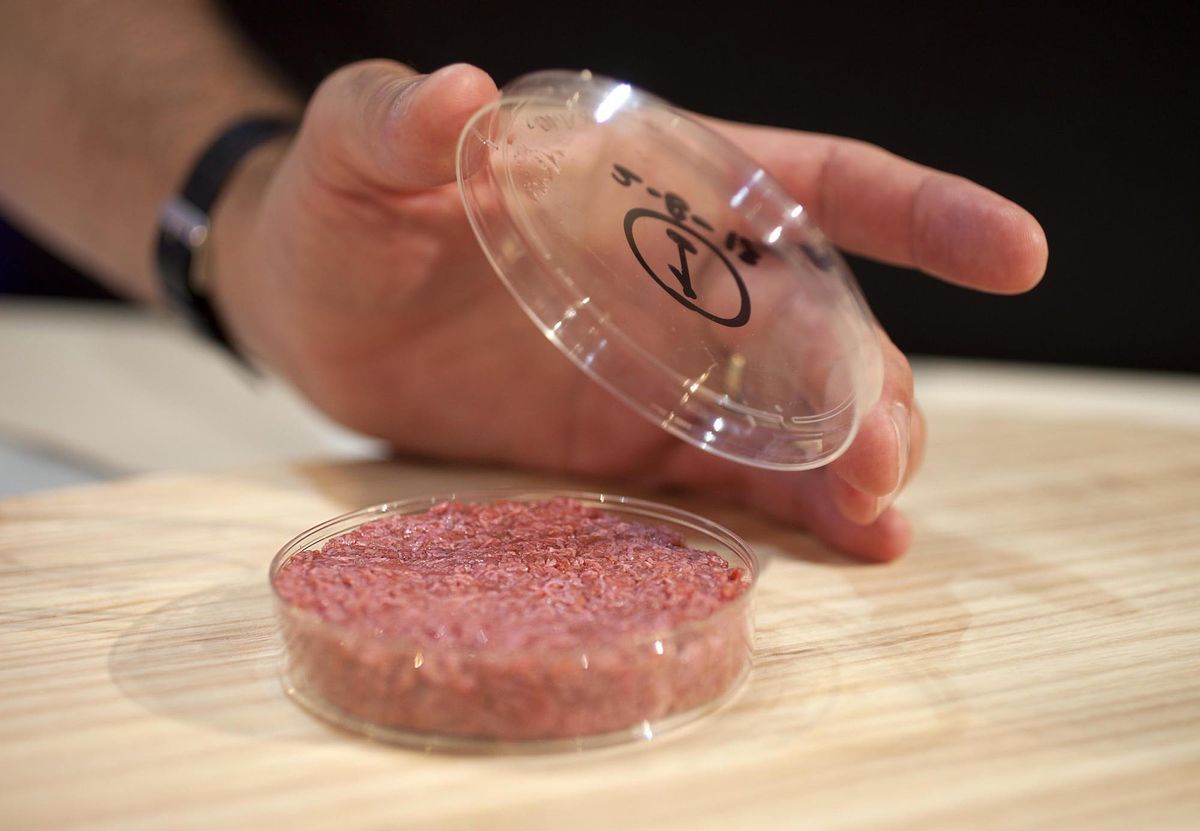Is a diet based on lab-grown meat the way to reverse climate change?

A few minutes every morning is all you need.
Stay up to date on the world's Headlines and Human Stories. It's fun, it's factual, it's fluff-free.
For years, activists warning about the worsening climate crisis have been advising people to eat less meat – or even no meat at all.
- Climate activists and vegans have a common cause: they want people to eat less meat.
- Veganism is, of course, a philosophy that seeks to minimize harm to animals by refusing to eat, consume or otherwise use any animal-produced products.
- Vegans often see the use of animal products as unethical and unnecessary.
- Climate activists might not frame it in terms of ethics, but they are just as incessant that a better future relies on fewer people eating meat.
- Both groups could get their wish if the scientists who are developing lab-grown meat are successful.
Meat consumption is tied to global warming
- For years, activists warning about the worsening climate crisis have been advising people to eat less meat – or even no meat at all.
- This is because the process for producing and shipping meat is responsible for considerable amounts of greenhouse gas emissions.
- But it’s not just that. More and more natural land and forests are being eradicated to make room for livestock farmland.
- Even in the face of warnings from both climate activists and environmentalists, meat consumption around the world is on the rise, even in places like India where vegetarian diets are very much a part of cultural or religious norms.
- All this raises a question: if reducing meat consumption is the key to fighting climate change, but people still prefer meat-based diets to vegan or vegetarian diets, what can we all do about it?
Switching to a cultured meat diet
- This was the question that Ezra Klein, the co-founder of Vox who works now as a columnist for The New York Times, tried to answer in a Twitter thread on May 4.
- Klein says he has stuck to an almost entirely vegan diet for nearly seven years and has been a vegetarian for even longer. But he also acknowledges that, for a lot of people (himself included), being vegan is difficult.
- He says that guilting or pressuring people into a non-meat diet doesn’t work and that the best way that activists can get people to stop eating meat is to instead focus on appealing alternatives to meat.
- The most promising alternative, says Klein, is likely going to be lab-grown meats, or what is also known as cultured meat.
- Klein even went so far as to suggest that Congress should provide funding for the research and development of this type of cruelty-free meat.
Is cultured meat actually safe?
- That’s the big question. For the moment, the best answer we have is maybe.
- In December 2020, Singapore became the first country on Earth to approve lab-grown meat for the public.
- Specifically, the Singapore Food Agency approved the sale of “chicken bites” made by an American company named Eat Just.
- The meat is grown with cells taken from live animals (with a biopsy) and then combined with plant-based ingredients.
- As numerous firms around the world continue producing their own cultured meats, there will be more testing and greater scrutiny on both the way this meat is made and any health-related issues.
- But for now, the fact that Singapore has approved the sale of one type of cultured meat suggests the technology could develop rapidly.
- That’s good news for people who are worried about climate change.
But is cultured meat vegan?
- Unfortunately, in the strictest sense, lab-grown meat is not vegan because it still involves taking something from animals.
- The process doesn’t kill or even necessarily harm the animals, but unless science can figure out a way to replicate existing cells, it still requires using animals.
- Even if cultured meat isn’t technically vegan, it could still lead to far less animal abuse and killings globally.
- Unfortunately, cultured meat is still far away from replacing meat in everyone’s diets.
- The process for creating this kind of meat is still really expensive and limited in options.
For now, those who want a meat alternative can turn to plant-based options like Beyond Meat.
Have a tip or story? Get in touch with our reporters at tips@themilsource.com




Comments ()